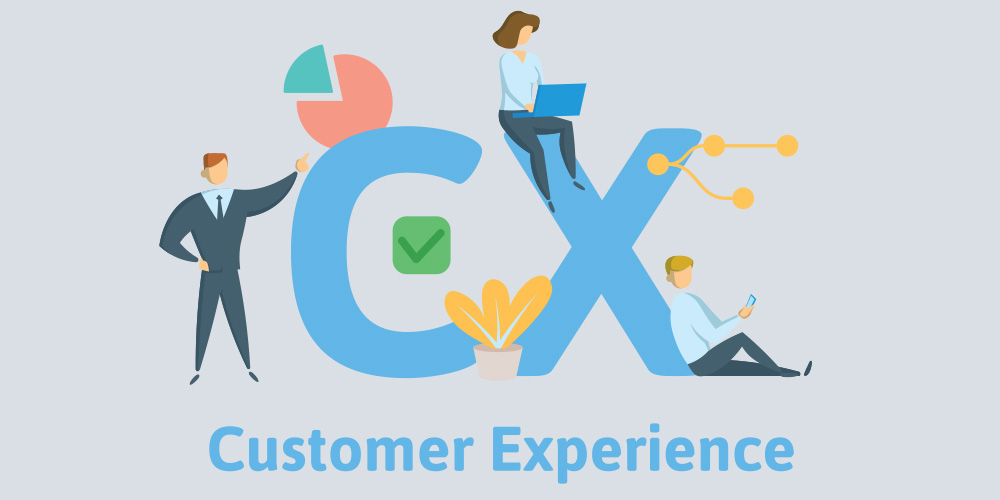
The online market has radically transformed and businesses need to move with the times if they are going to stay relevant and competitive. In this post, we’ll look at the impact of sustainability and customer experience and explain what you need to do to stay ahead of the game.
The sustainable business

Consumers worldwide are becoming increasingly conscious of how their actions have an impact on the environment and society. This affects their choice of brands and the products and services they buy. Ideally, they would like their favourite brands to adopt more ethical approaches to the environment and society, but if not, they are prepared to find new brands whose values better align with their own.
What does this mean for online businesses? First, it means that companies need to be ethical. They have to try and reduce their impact on the environment by cutting carbon emissions, using sustainable resources, ditching single-use plastics and anything else that improves the natural world. At the same time, they will need to implement socially ethical policies: delivering diversity and equality of opportunity, paying fair wages and treating staff, customers and suppliers well.
Of course, ethical businesses should also communicate this to consumers. Getting the message out is important to remind existing customers and to inform potential new ones of the efforts they are making to be a sustainable and ethical business. This should be clearly communicated on websites, in blog posts, on social media and on other forms of communication.
What’s more, consumers expect responsible brands to apologise for and make amends for both historical and more recent mistakes. One of the UK’s major pub chains has recently been commended for apologising for one of its founders profiting from the slave trade and more recently has renamed pubs whose original names might be seen to be racially offensive. Such acts of contrition that show a clean break with the past and a desire to move forward more ethically have helped consumers see the business in a more positive light.
With 87% of consumers having a more positive view of companies that support social or environmental issues, sustainability has become an important battleground on which companies compete for new business. To be a successful online business in 2021, this is an area that calls out for development, not just for the sake of the business, but for the planet and society as a whole.
Customer experience

The other key area of competition is customer experience and for online businesses, this is often driven by the adoption of new technologies. In the digital marketplace, customer experience has real value for consumers: over 80% of them are prepared to pay more for products and services if the experience is great.
What do we mean by great customer experience? Today, it means 24/7 accessibility, speed, convenience and seamlessness. Customers expect personalisation, omnichannel shopping and omnichannel communications. They want presenting with the products and offers they are looking for, purchasing to be easy and delivery to be ultra-quick. What’s more, they want to be able to buy on any device (and in-store), have communications delivered via their channel of choice and they want the whole experience to be engaging and rewarding.
It’s a big ask – but one which many companies have already adopted and are benefitting from. Implementing digital transformation today will not put companies head of the field, but it will ensure they stay relevant to the modern consumer and help them catch up with and compete with their rivals.
It’s almost impossible to offer great customer service today without adopting cloud technology. The cloud is needed to analyse the data essential for generating customer journey maps, without which it’s impossible to offer truly personalised product recommendations or provide seamless experiences. It’s also needed to carry out data analytics to gain insights into new opportunities and ways to cut costs.
The cloud is also vital for making use of technologies such as AI, machine learning and automation, that help deliver improved customer experience. It lets companies deploy 24/7 website chatbots, send instantaneous automated messages via multiple channels, maintain control of inventory and delivery so that products remain in stock and arrive quickly.
The cloud also provides the ability to integrate various key services, such as websites, apps, social media channels, communications channels, in-store services, marketing services, production infrastructure and more.
Of course, the cloud is also the most cost-effective way to run all these services. There’s no need to purchase hardware, it provides the flexibility to scale up or down resources in line with demand, there are fewer security and IT management demands and businesses will be assured their apps remain available at all times.
Conclusion
In the 2021 marketplace, sustainability and customer experience have become the main areas on which businesses compete. These have become more important to consumers than price or products. To stay relevant, online businesses need to be more environmentally-friendly, socially ethical and deliver better customer experience. This may mean a shift in direction for the company and in how it markets itself. With customer experience, it also requires digital transformation and the adoption of cloud technology.


